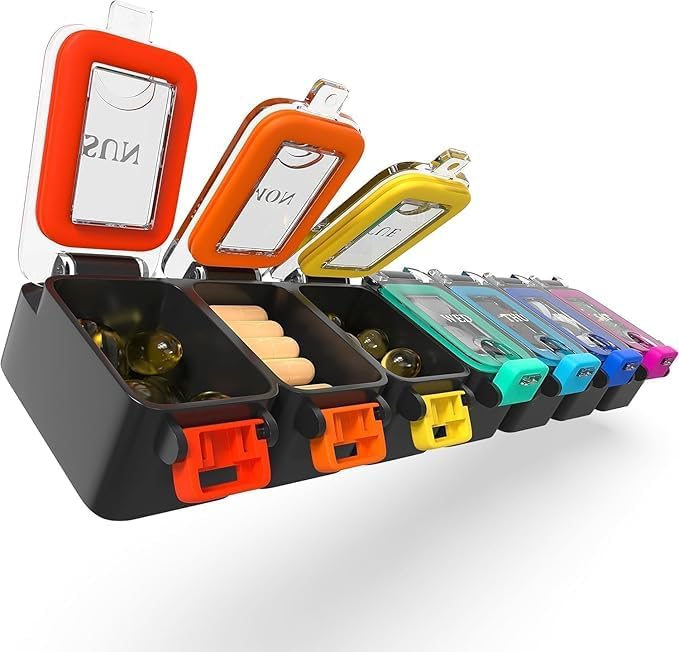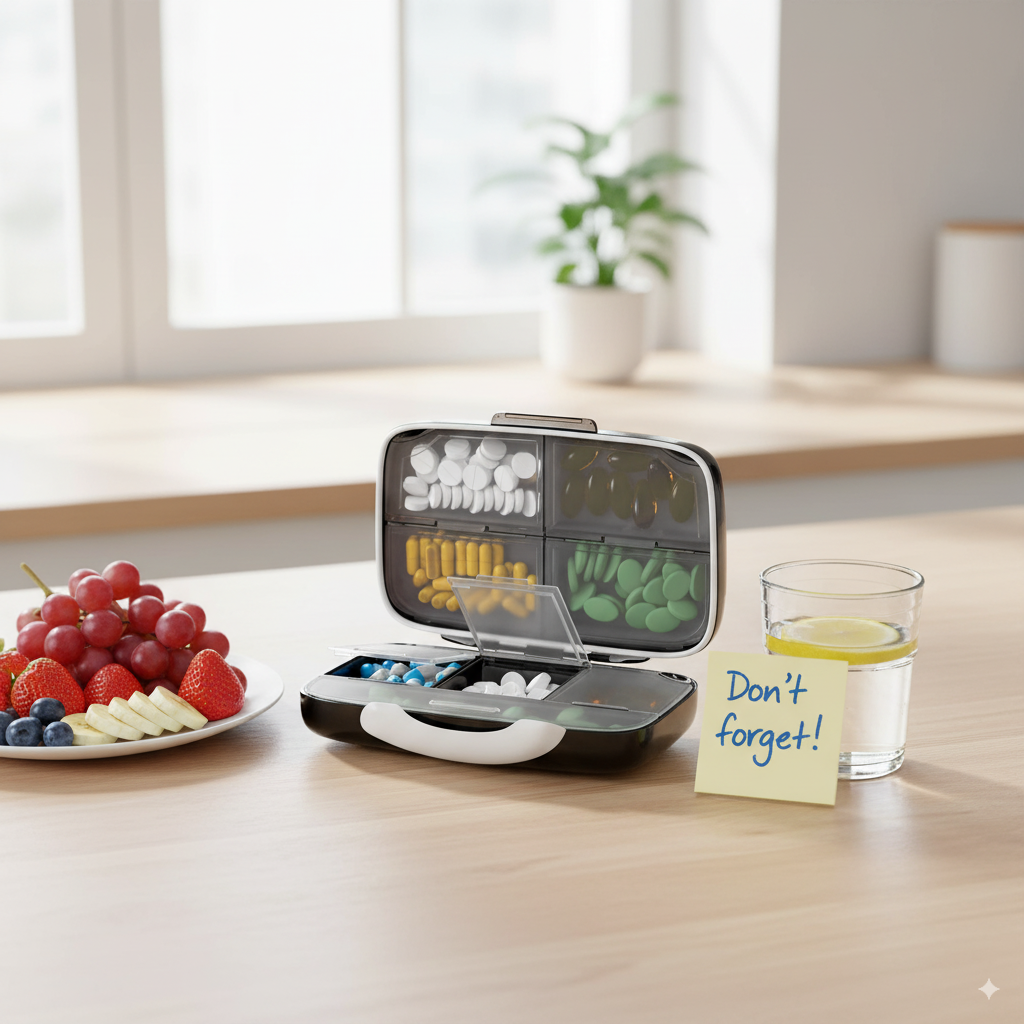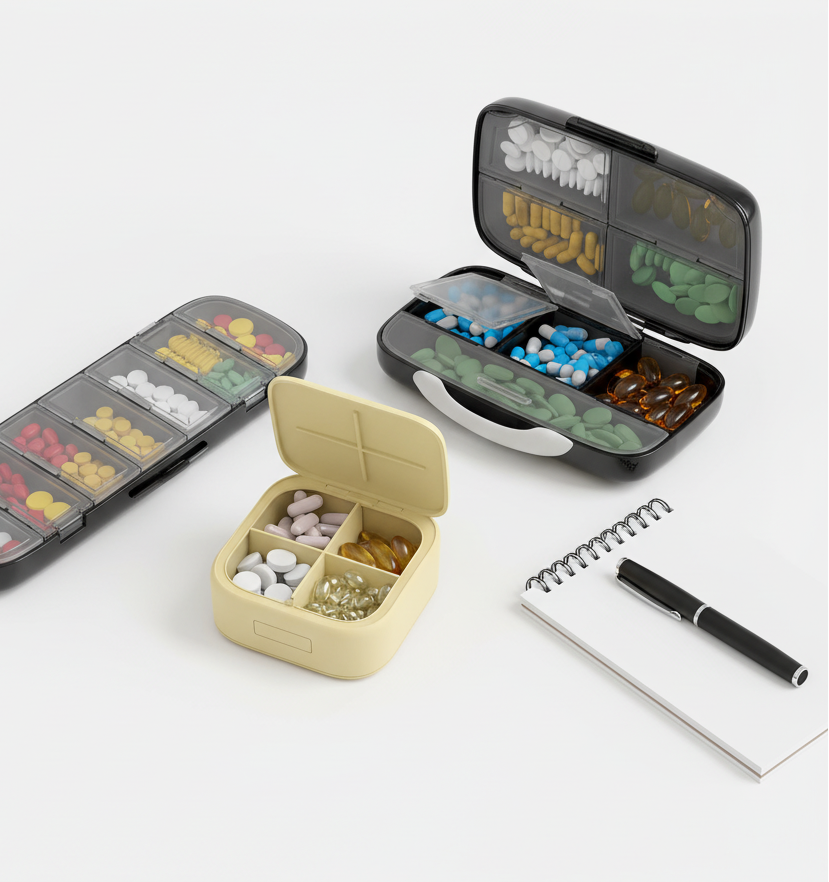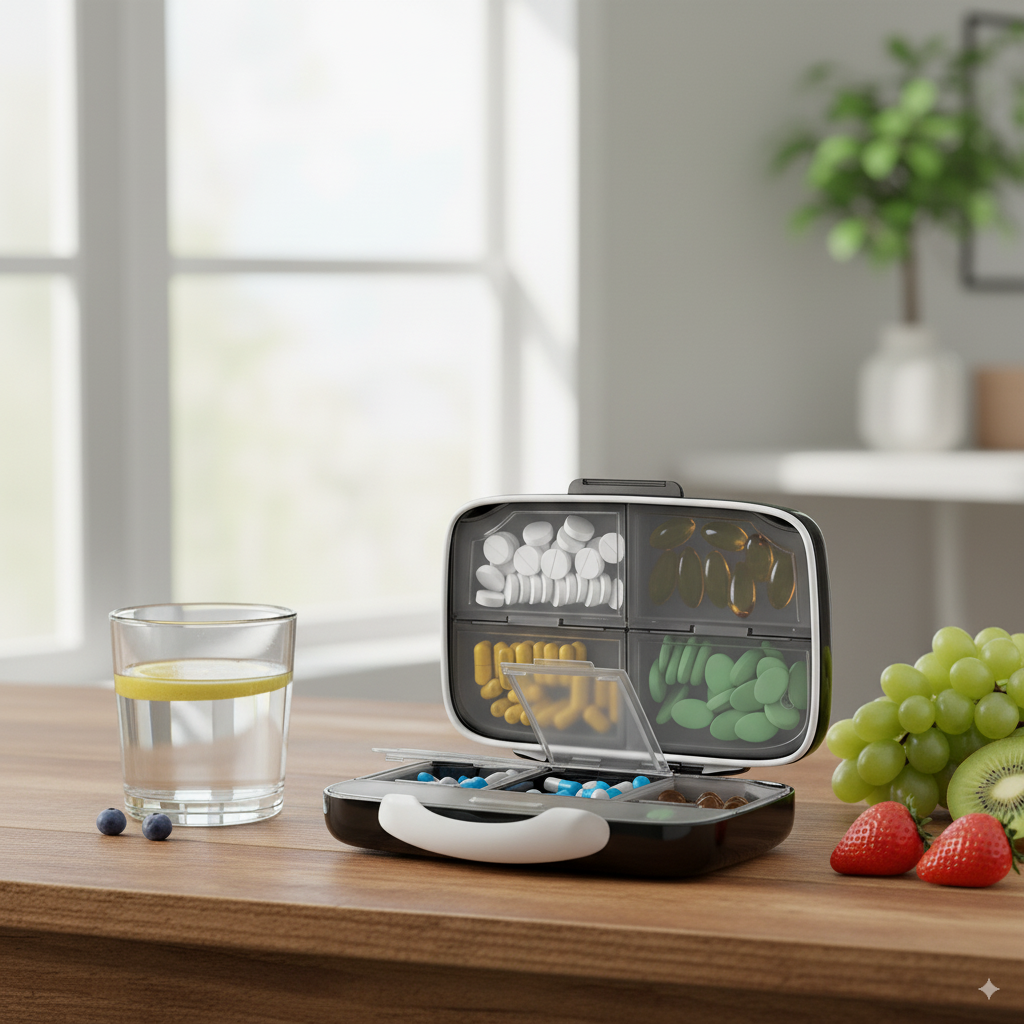Traveling with Medications - TSA Rules Made Simple
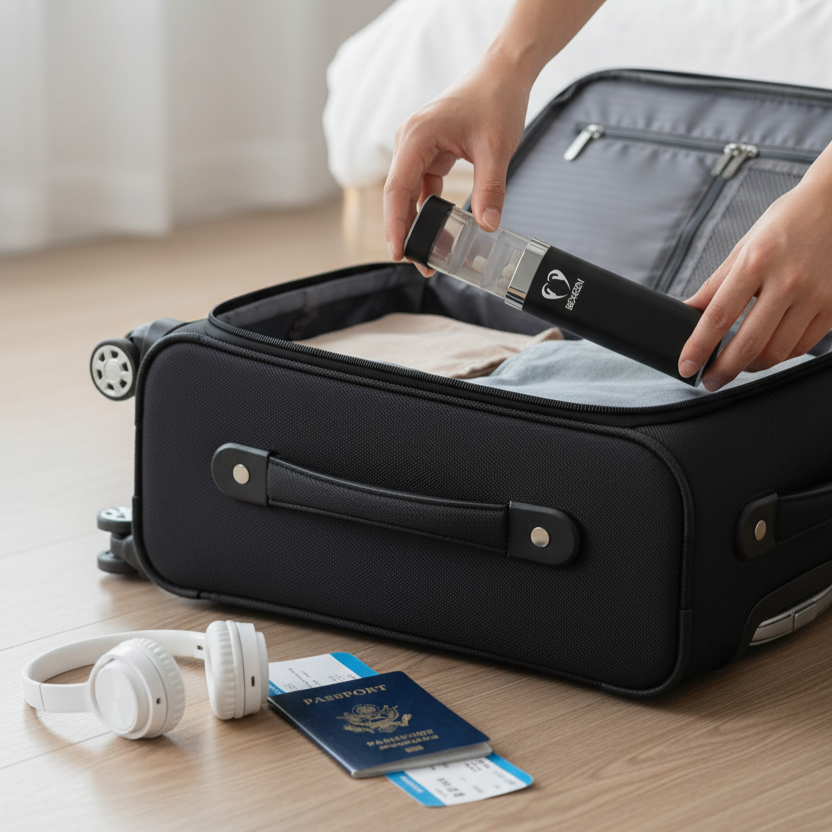
Introduction
Flying can be stressful, but for travelers who rely on daily medications or supplements, it often comes with an extra layer of worry. Questions like “Can I bring pills on a plane?” or “Will TSA stop me if I don’t have prescription labels?” are extremely common.
The good news is that the Transportation Security Administration (TSA) allows passengers to travel with medications — both prescription and over-the-counter. The key is understanding the rules and preparing properly to avoid last-minute hassles at airport security.
In this guide, we’ll break down TSA requirements, best packing practices, and how a travel-friendly pill organizer can simplify your journey.
TSA Rules for Medications in 2025
The TSA maintains straightforward guidelines for passengers traveling with medications:
Pills and solid medications are allowed.
You can bring pills, vitamins, and supplements in both carry-on and checked baggage without restrictions.
No quantity limit for pills.
You are not restricted by amount, whether you carry a week’s supply or a three-month prescription.
Medications do not need to be in original containers.
TSA does not require pills to be in their original prescription bottles. Organizers are acceptable, as long as medications are clearly separated.
Liquids and gels follow different rules.
Liquid medications (e.g., cough syrup, insulin) are exempt from the standard 3.4 oz (100 mL) liquid limit, but you must declare them at security.
Security officers may inspect.
TSA has the right to inspect medications if needed. Keeping them neatly packed in a pill organizer helps minimize delays.
Why Carry-On is Better for Medications
Although you can store medications in checked baggage, experts recommend keeping them in your carry-on bag. Here’s why:
-
Immediate access: If you need to take your pills during the flight, they’ll be within reach.
-
Lost luggage protection: If your checked suitcase is delayed or lost, your medications stay safe.
-
Temperature control: Aircraft cargo holds may be too cold or too hot for sensitive medications.
A compact pill organizer easily fits in your carry-on or personal bag, ensuring safety and accessibility.
How to Pack Medications for Air Travel
1. Use a Travel-Friendly Pill Organizer
A leakproof, TSA-approved pill organizer is the simplest way to carry medications. It keeps everything in one place, prevents spills, and makes airport inspections smoother. Choose one with:
- Secure locking lids
- Compact, discreet design
- BPA-free, medical-grade materials
2. Separate Daily and Emergency Supply
If you’re traveling for a longer period, keep one week’s worth of medications in your carry-on and the rest in your checked luggage. This way, even if your suitcase is delayed, you won’t miss essential doses.
3. Carry a List of Medications
Write down or store a digital note with your medication names and dosages. This helps in emergencies and can be useful if you need medical care abroad.
4. Keep Prescriptions for Controlled Substances
While TSA doesn’t require original containers, some international destinations may. If traveling with controlled substances, keep your prescription copy handy.
5. Organize by Time and Day
If you take multiple doses daily, choose an organizer with AM/PM compartments or multiple sections per day. This prevents confusion in different time zones.
Common Traveler Concerns
“Will TSA confiscate my pills?”
No. Pills and solid medications are allowed in unlimited quantities. They may be screened, but they won’t be taken away.
“Do supplements count as medications?”
Yes, supplements (like vitamins, fish oil, or herbal capsules) are treated as medications and are allowed.
“What about international flights?”
Rules vary by country. For example:
- In the US and EU, pill organizers are widely accepted.
- Some countries in Asia or the Middle East require prescriptions for certain medications.
Check embassy guidelines before traveling.
“Can I take pills without labels?”
Yes, TSA does not require labels. But carrying at least one prescription (especially for strong medications) is recommended for safety abroad.
Why a Pill Organizer is Essential for Travel
Travel often disrupts routines. Between changing time zones, long flights, and busy schedules, remembering to take your medications can be difficult. A travel pill organizer helps in several ways:
- Saves space: Instead of carrying multiple bottles, all pills fit in one compact case.
- Prevents spills: High-quality organizers are leakproof and secure.
- Discreet use: No need to take out prescription bottles in public.
- Time-zone friendly: Organizers with multiple compartments per day help adjust easily when traveling abroad.
At Bexeen, our travel organizers are designed specifically for these scenarios: compact, TSA-approved, and durable for long-term use.
Tips for Staying on Track While Traveling
Even with the right organizer, maintaining consistency is key. Here are a few tips:
- Set alarms on your phone to remind you of pill times across time zones.
- Refill your organizer nightly so you’re ready for the next day.
- Keep pills in your personal bag (not the overhead bin) for easy access during long flights.
- Stay hydrated — flying dehydrates you, and some medications require water intake.
Final Thoughts
Traveling with medications doesn’t have to be stressful. The TSA allows pills and supplements in both carry-on and checked luggage, with no limits on quantity. The real challenge is staying organized and ensuring your pills are always accessible, safe, and ready when you need them.
A TSA-approved pill organizer is the easiest way to travel with peace of mind. Whether it’s for a short domestic trip or a month-long international journey, it helps you stay consistent, prevent mistakes, and protect your health.


